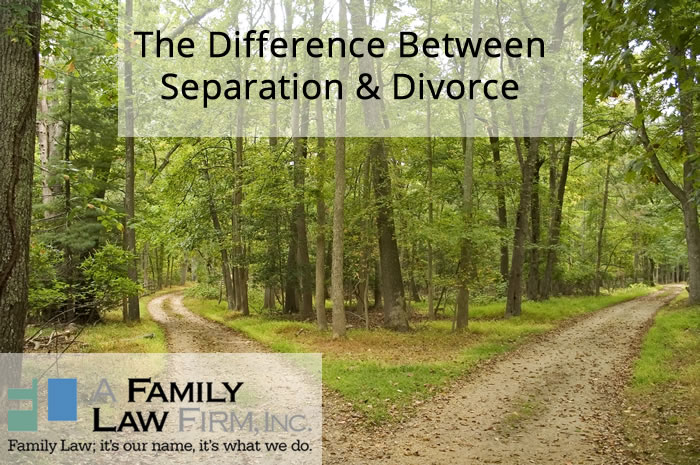
What’s the Difference Between Separation & Divorce?
If you and your partner have decided it’s time to end your relationship, you may be wondering: What does it mean to be legally separated? Do we need to separate before divorcing? Are there benefits to legal separation?
While being separated and divorced both involve you living separately, they’re not the same thing. A legal separation means you’re still legally married, even if you’re living thousands of miles apart. Divorce means you’re not legally married anymore, and it’s the most final option.
If you’re thinking of just moving out of the family home or striking a verbal agreement with your spouse, don’t. It’s essential to have a legal agreement in place to resolve issues such as child support, the division of property/debt and spousal support.
Have questions about child support? Read our blog What Factors Are Used to Determine Child Support & Custody?
Benefits of Legal Separation in California
While not all states allow spouses to legally separate, California is one that does. We’re not telling you what to do in your specific situation; we’ve supported numerous clients during their divorces. We’re simply sharing some benefits of legal separation according to some clients we’ve worked with:
There’s no waiting period. However, if you file for divorce, you need to wait six months before it becomes final. California is also a no-fault state, which means that factors like adultery don’t affect your case. Nor does the other person have to agree to you filing.
It can be a trial period. If a couple isn’t 100% sure divorce is the right option, a trial split can help solidify a decision. Keep in mind that the majority of these trials end in divorce, and both parties have to be willing to work on the marriage while they’re apart for there to be any chance of reconciliation.
It buys you some time. While divorce after legal separation is the most common outcome, separating first can give a couple some breathing room to figure out financial issues like mortgage payments and bank accounts. Or, people may want to wait to actually divorce until kids have moved out of the house or the non-earning partner has found a job.
Social security benefits. It’s not quite as simple as this, but the gist of it is: If your marriage lasts at least 10 years, a divorced spouse can be entitled to their ex’s benefits. Some couples who have been married for under 10 years may put off divorcing if they’re close to receiving these benefits. There are also certain military benefits that an ex-husband or -wife may qualify for.
Health benefits remain the same. Your company’s health care plan will cover your spouse, but not your ex-spouse. There are couples who are content to put off divorce after legal separation in order to take advantage of one spouse’s health, dental and vision benefits. Caution: Some employee benefit plans consider being separated the same as divorce, so read the fine print.
The decision to legally separate or divorce is complex. You need the support of an experienced family law practice to ensure that you make smart financial choices and end up with an arrangement that’s best for you.
Contact us for help navigating the California legal system.